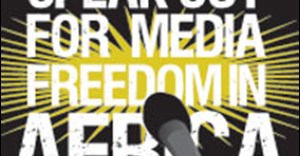Worldwide Press Freedom Index 2008: close-up on Africa
Some countries that were sorely tried by years of war or dictatorship are emerging from the depths to which they were plunged by violence. They include Liberia (51st), where some police officers still behave with deplorable brutality, and Togo (53rd), which is managing to adhere to acceptable democratic standards.
In democracies such as Botswana (66th) and Benin (70th), the climate between the government and the press often deteriorates, preventing these countries from attaining the positions they would otherwise deserve, given their overall political situation.
Senegal (86th) has fallen again in the ranking because of the government's stubborn refusal to amend the press law and the often outrageous behaviour of some of Dakar's newspapers. Senegalese journalists were imprisoned again this year. The bad surprise came from Mauritania (105th), where legislative reforms were clearly inadequate and the political culture continues to be marked by former president Ould Taya's police-state practices.
There is no point in having a diverse and often insolent press unless you tolerate it without resorting to the security forces or an easily influenced legal system. In Central African Republic (85th), Burundi (94th) and Guinea (99th), for example, the least political unrest can send journalists to prison or at least the police station.
This year's black spots in Africa were Kenya (97th), which fell 19 places as a result of post-electoral violence, and above all Niger (130th), which fell 41 places after a very trying year for journalists in Niamey and elsewhere. Reporting on the Tuareg uprising in the north of the country has become an absolute taboo for the government, especially in the run-up to the 2009 presidential election.
The African countries near the bottom of the ranking are also the same ones as usual. They include Gambia (137th), Democratic Republic of Congo (148th) and Zimbabwe (151st), where independent journalism requires courage, determination and an ability to put up with violence and injustice.
Finally, the gigantic posters to the glory of President Teodoro Obiang Nguema throughout “Africa's Kuwait” say it all about the media situation in Equatorial Guinea (156th). But the continent's most abused country is yet again Eritrea (173rd), last in the ranking for the second year running. President Issaias Afeworki clings to his deliberate choice of cruelty to the many journalists held incommunicado since 2001, and despotism as his method of governing a country whose citizens continue to flee into exile.
Read the full article and access the complete Annual Worldwide Press Freedom Index 2008 here.





